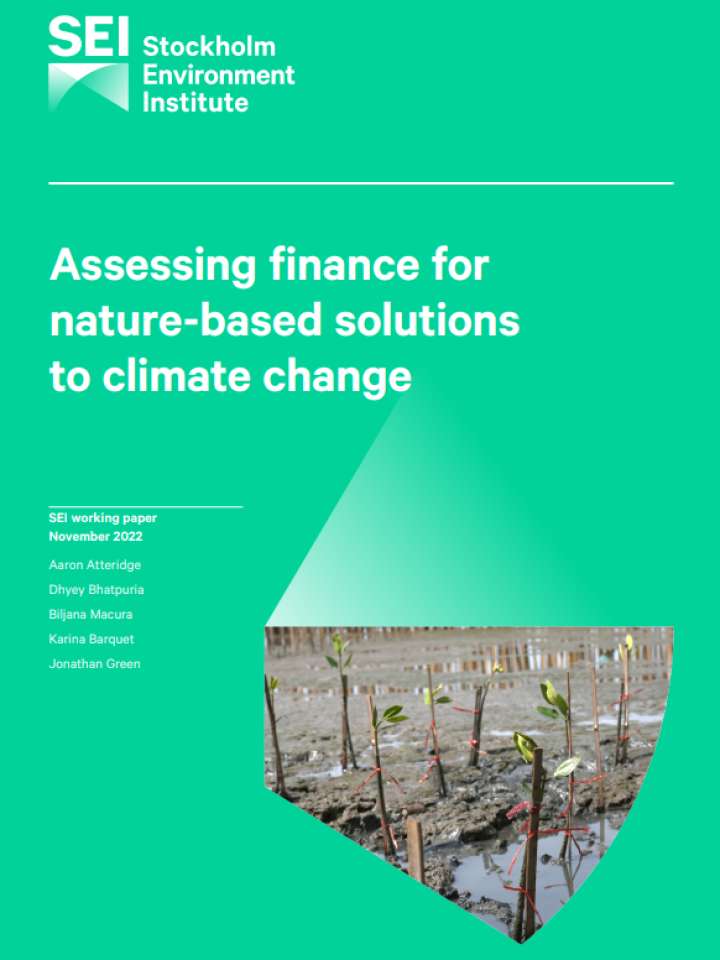Assessing finance for nature-based solutions to climate change
This paper uses a global data set from the Organisation for Economic Co-operation and Development to assess the scale of funding for nature-based solutions to climate change aimed at developing countries. It also examines how effectively this funding is being put to use.
The assessment of the OECD data set found that:
- For developing countries globally over the five-year period from 2016 to 2020, a total of US$ 14.66 billion of commitments that targeted climate change were also targeted at biodiversity objectives (which we call finance for “NbS-like” activities). Note that this excludes most funding from multilateral development banks, a significant gap in these figures.
- Since 2017, there has been a declining trend in climate finance targeted towards biodiversity objectives, both in total amounts committed and as a share of total climate finance (which has also declined). This should worry those interested in reversing the degradation of natural ecosystems and loss of biodiversity globally.
- Experience with NbS-like finance varies among the countries which are most vulnerable to climate change. Many small island developing states (SIDS) and least developed countries (LDCs) have received little or no climate funding that supports NbS-like approaches, even though these countries are financially constrained domestically, and many have significant natural ecosystems to manage. For example, the Marshall Islands and Tuvalu are custodians of vast marine territories important for global biodiversity and fisheries, so NbS approaches would seem essential there. Yet the lack of financial support to these countries suggests that NbS approaches are not being prioritized in climate planning and/or project development.
Explore further
